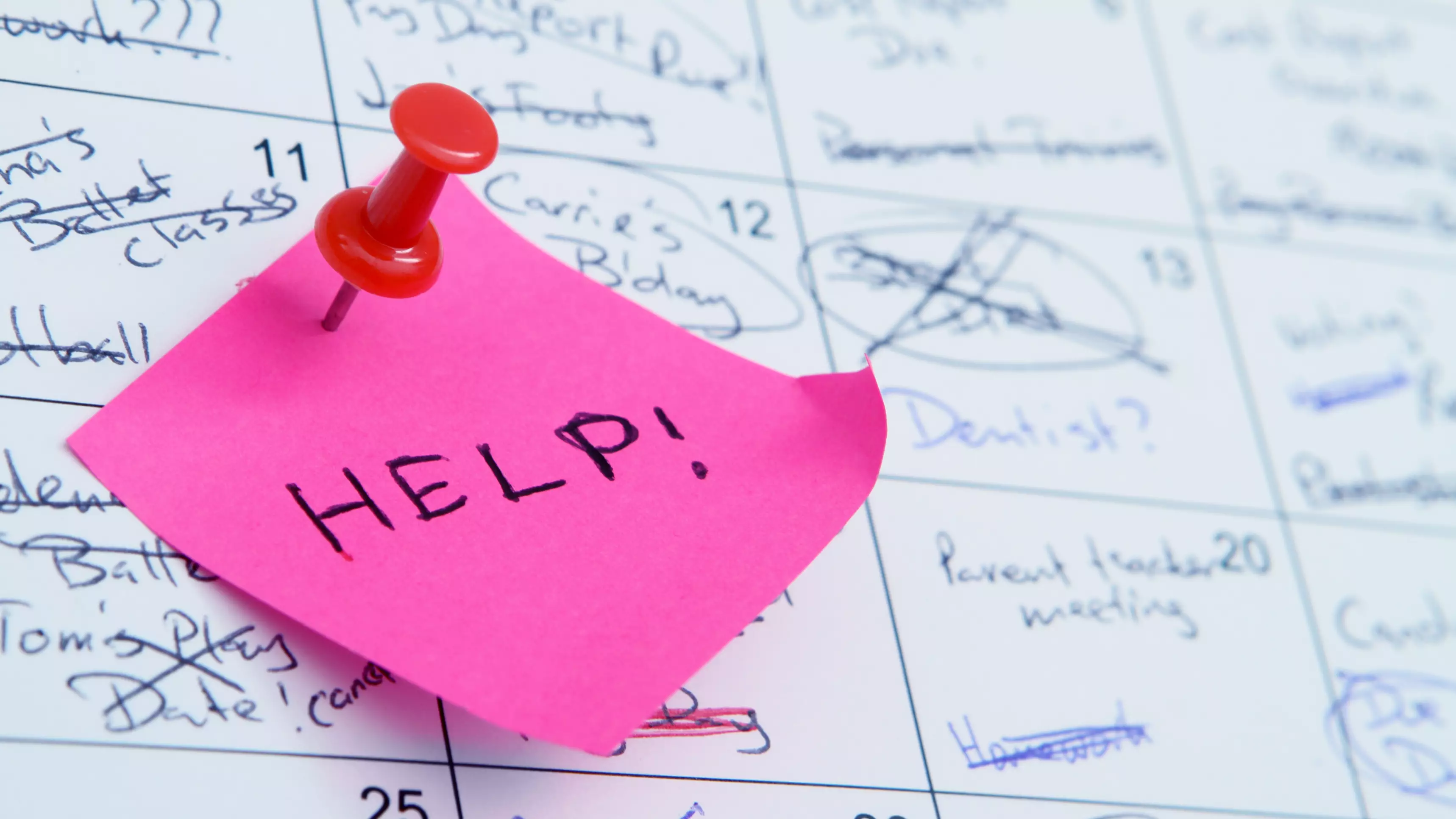
The human brain is strange, isn't it? I've spent lockdown obsessively fantasising about the day I'll be able to see my friends again, and now that it's upon us, I'm filled with anxiety.
Since the easing of restrictions was announced, my weekends are filling up more rapidly than I can keep track of, each arrangement I say 'yes' to bringing heart palpitations and a tightening chest.
The old me would have delighted at the prospect of a jam-packed social schedule. So why is it that I can't stomach the thought of being busy any more?
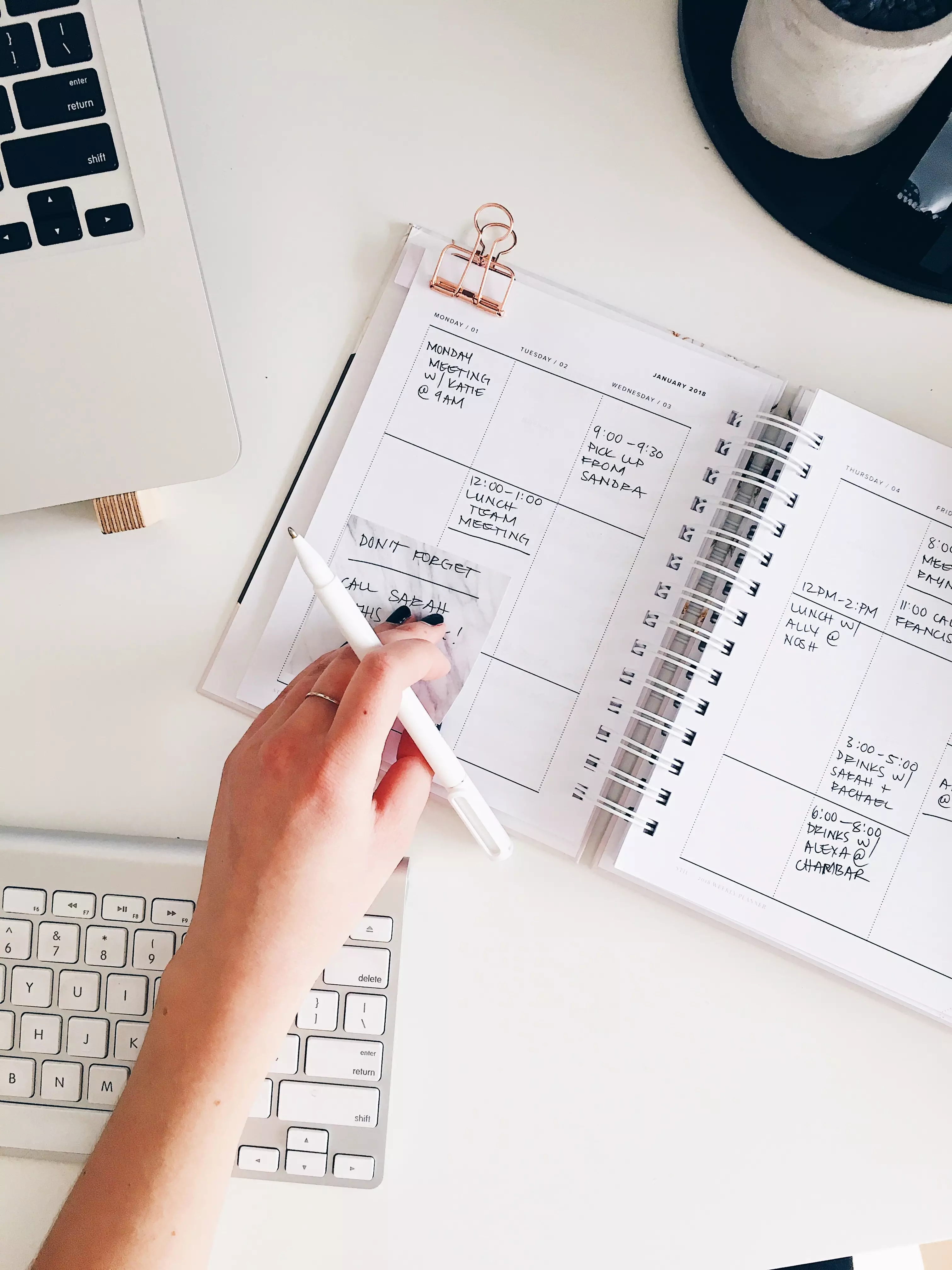
I'm far from the only one who feels nervous at the prospect of getting back to 'normal'. A scroll through social media confirms that there are many others whose stomachs are in knots.
Advert
"It's weird, the more things open up, the more anxious I get," writes one woman on Twitter, addressing the opening of pubs and shops once more. "Change makes me nervous. This life in "lockdown" has become too normal for me. I'm comfortable with how everything is now. It doesn't feel strange anymore."
"As a socially anxious person I was... well, happy to be in lockdown," another says.
"May sound crazy to most but its actually been the least stressful time of my life. I, for one, don't understand the excitement [about easing restrictions] either".
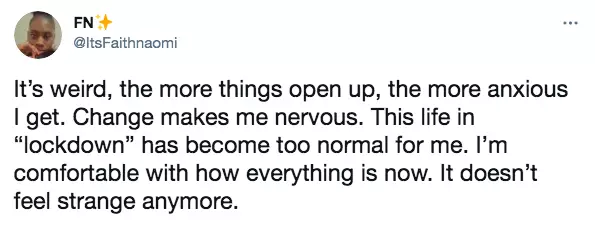
These sentiments are echoed by Lori*, 31, from London, who tells Tyla: "Throughout the latest lockdown I've been counting down the days until things return to normality, booking pub tables and picnics with friends.
Advert
"But as the dates draw closer I'm feeling increasingly nervous - not just about seeing people again but the whole rigmarole of choosing an outfit, putting on makeup and using public transport again. I'm excited to see my friends, but a small part of me just wants to stay curled up in my flat like a hermit."
Rochelle*, 29, from Leeds, agrees. "I've hated being locked up, but I've gotten used to it finally," she says. "I forgot what having social anxiety feels like and how tiring attending events are. I will miss being chilled... and not tired.
"I've already written draft texts to friends trying to find an excuse for why I can't attend their garden parties, dinner bookings."
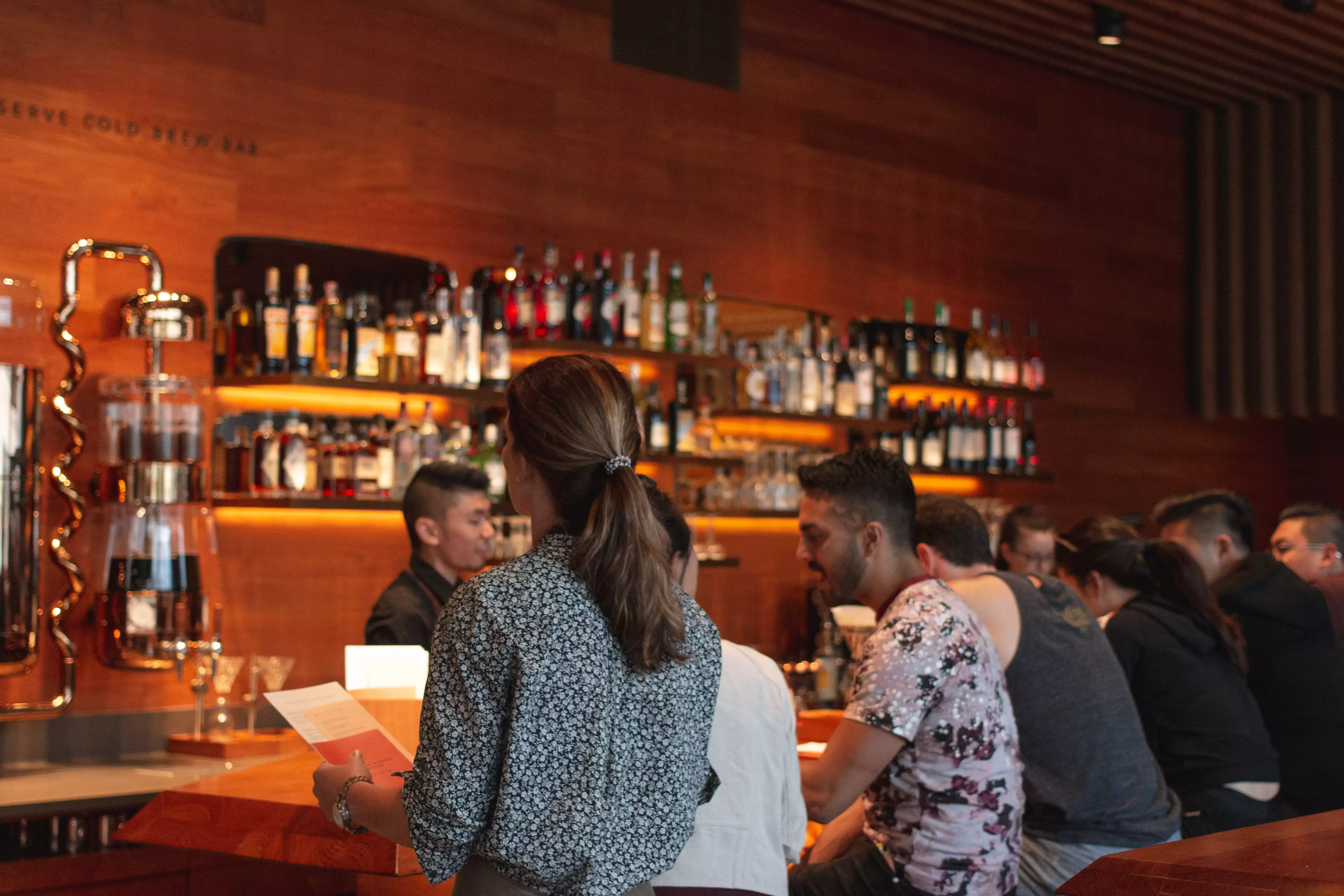
Could that feeling of being perpetually busy actually be just as bad for our mental health as having no plans at all?!
Advert
The answer is yes, according to Stephanie Taylor, Founder and Wellbeing Expert at StressNoMore. Speaking to Tyla she says that it's natural that a disruption of our structured and more isolated 'new normal' might feel unsettling at first, and affect our mental health.
"After a year in and out of lockdown, we've all had time to focus on personal goals and gotten used to more time for self-care," she says. "Now, in line with the restriction-easing roadmap, there is a lot of pressure on people to make plans."
Meanwhile, Juan Carlos Gouveia, a Rapid Transformational Therapist from Change I Deserve, adds: "Many women will be dealing with the legacy of the stresses and strains we have endured this year. The loss of loved ones, home-schooling of children, working from home and reduced independent movement may all have repercussions which take their time to subside."
What is social anxiety?
According to Stephanie, social anxiety can present itself in many ways, with physical symptoms including a faster heartbeat, blushing, sweating, trembling an upset stomach. It can also cause you to have trouble catching your breath, and cause tension in your muscles, dizziness or even slight mind blanks.
Advert
Mentally, it's typical for those struggling to also overanalyse situations, withdraw from planned activities and become more insular.
And while it's likely that many people who already suffer from anxiety will experience these symptoms in the coming weeks, Stephanie adds that after the stressful year we've had, everyone should be on guard, as they are also "sure to be felt even by people with no previous history of anxiety," too.
Here are few of the situations which could be triggering, and why...
Fear of social interaction
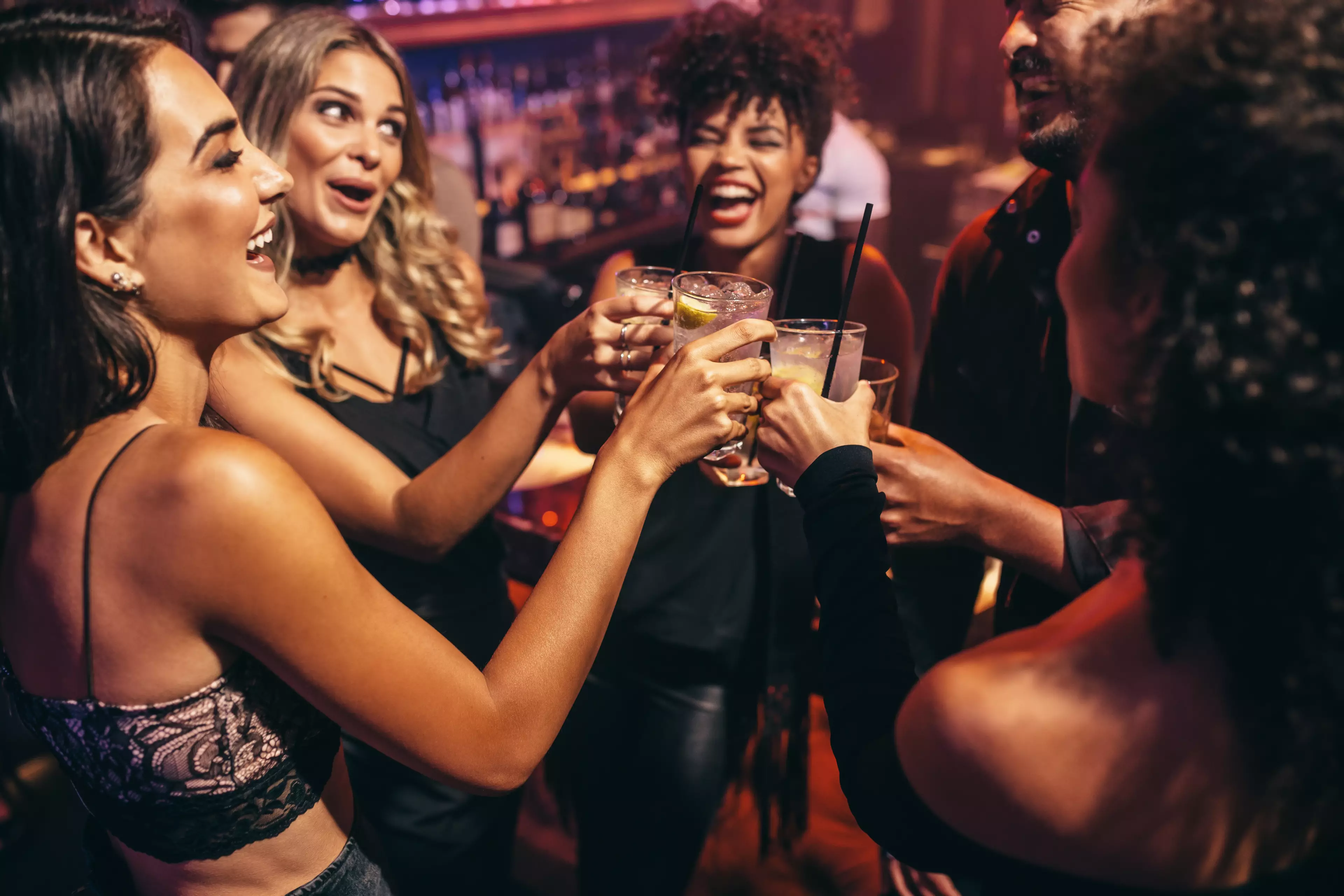
Coming out of a long stint where we only interacted with our households, one fear people may have is not feeling capable of socially exerting themselves, like they once could.
Advert
"Being in lockdown, [people have] likely only had to interact with those close to them and haven't had to step foot out of their comfort zones, when it comes to being in public places surrounded by new people," Stephanie says.
"People with social anxiety can often fear situations where they could potentially feel embarrassed, interact with strangers or be judged.
"Reintroducing people that you haven't been used to socialising with over periods of lockdown is triggering as it is the fear of the unknown."
Anxiety over appearance
Add stresses you may currently have about your physical appearance into the mix, and anxiety is only further exacerbated.
Juan Carlos warns: "With a lot of our support structures changed or adapted, some may be aware that they have not been able to keep in the shape they would have liked (with gyms closed), and may feel more self-conscious of their body image."
"[Lockdown easing] has inevitably put pressure on a lot of women to look their best," Stephanie confirms.
"As a society we're always looking for self-gratification as well as wanting to make an impression on others, and that's why grooming services such as hairdressers and beauty salons are already experiencing an influx of bookings."
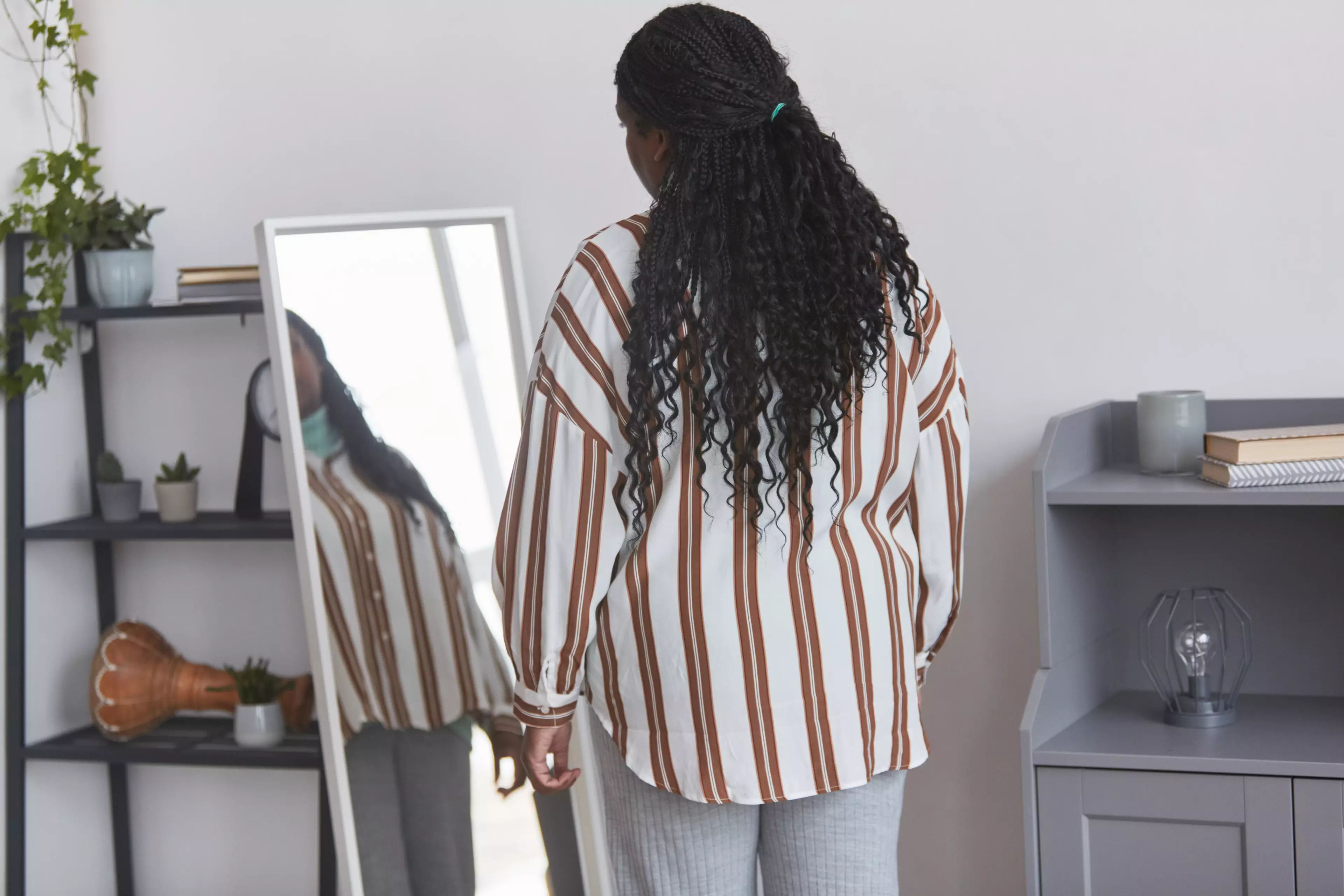
To combat this, it's important we "try to avoid the 'glow up for June 21st' mentality" which is being felt by so many at the moment.
Remember that while we may have changed, this isn't necessarily a bad thing, and others are likely to be in the same boat, as well.
Anxiety over Covid-19
Another issue troubling many women is the fact that the Covid risk isn't completely gone.
"With the availability of vaccinations depending on age, many women may still feel vulnerable to catching Coronavirus," Juan Carlos says. "This may cause feelings of anxiety to arise when in close proximity to others."
While it is likely this feeling will "diminish over time" as the vaccine rollout continues, the expert adds that feeling constantly alert about what we do could trigger the production of stress hormones, like cortisol, when we first step back out into the world again.
"Continuously elevated levels of these stress hormones are detrimental to our overall health and also very draining to our energy levels," he says.
Burnout
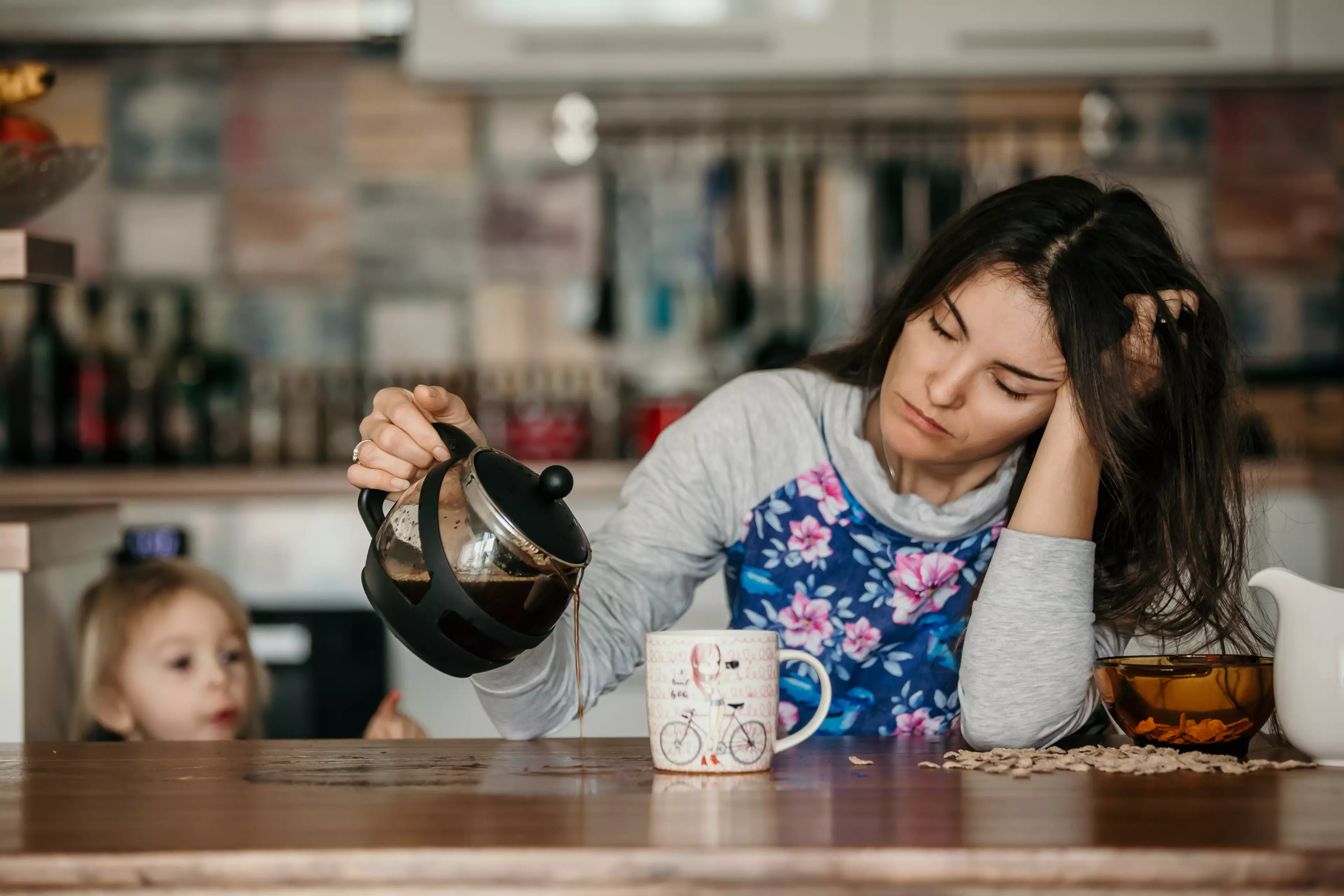
There's also the issue of burnout, and feeling like you don't have enough free time to yourself.
As Juan Carlos points out, lockdown may well have triggered "women's re-evaluation of their social needs against their personal needs."
"Most people have had at least a little more 'me-time,'" he says. "And we may find that women are reluctant to ram their diaries as full as they did pre-Covid, [wanting] to leave more room in between engagements to enjoy on their own."
The prospect of a filled up diary can therefore lead to a fear of "overdoing it," and not being able to maintain the same sense of balance and order.
"By definition, a burnout is a state of emotional, physical, and mental exhaustion caused by excessive and prolonged stress," Stephanie explains.
"This can occur when individuals are feeling overwhelmed, emotionally drained or unable to meet constant demands - something which people with social anxiety are likely to experience post-lockdown due to the pressure to make plans again."
"It's important to remember that while it may be exciting to make as many plans as possible now that we can, it's not necessarily the best for our mental health," she adds.
Juan Carlos suggests that people "take things slowly, building back up over the course of a few months."
"It would be wise to think about how much you did pre-pandemic and assess if that level of socialising gave you enough time for yourself," he says. "If it didn't, change it. The key things are be kind to yourself, ask for help when you need it and stay positive."
Featured Image Credit: ShutterstockTopics: lockdown, Mental Health, Life, Coronavirus, Health